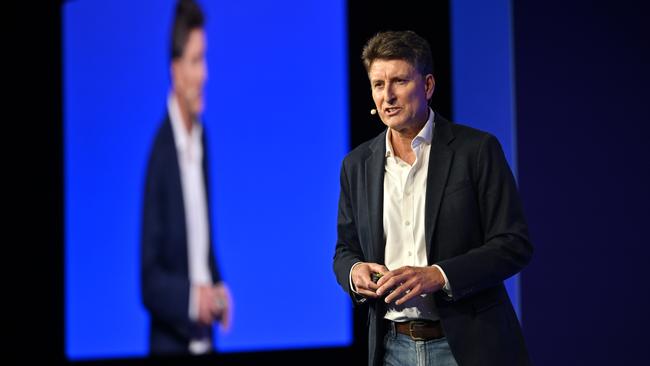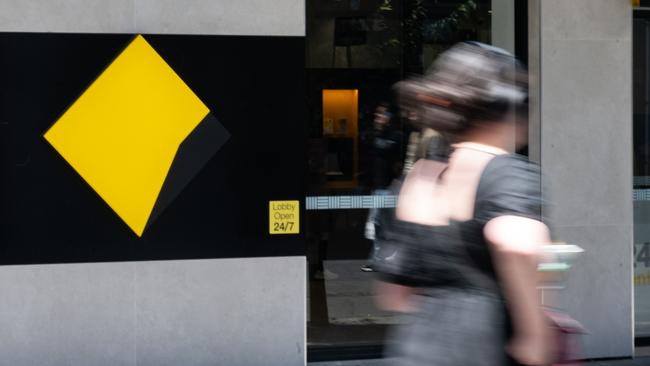Inside Australia’s big AI bet: global study reveals how much local companies are saving
The Productivity Commission says it’s impossible to know whether AI can deliver on long-term promises, but Microsoft says Australian firms are already saving millions of dollars.

Australian companies are generating more savings using AI platforms than the global average, according to an international study.
Microsoft, which has surpassed Apple as the world’s most valuable company – with a market capitalisation of $US3.01 trillion – said Australian businesses that have adopted AI were reaping a return of 3.66 times every dollar spent.
This compares with a global average of 3.5 times, according to new research from IDC which Microsoft commissioned and was based on a survey of more than 2000 business leaders and decision makers.
The higher rate of savings comes as the Productivity Commission said last week that while AI has the potential to contribute to major productivity gains, it was impossible to know whether the technology could deliver.
The Albanese government is pinning its hopes on the much-hyped technology, forecasting it to inject up to $600bn a year – about a quarter of the country’s current GDP – into the national economy by the end of the decade.
Australian companies that have adopted Microsoft’s suite of products to deploy AI platforms, or develop their own versions of the technology, include Commonwealth Bank, ANZ, Telstra, global engineering firm GHD and pathology giant Healius.
Commonwealth Bank says it is saved customers hundreds of millions of dollars in preventing scams and mistaken payments.

Microsoft Australia New Zealand managing director Steven Worrall said while it was still early days, the ability to generate a 3.66x return on investment was substantial.
Collete Stallbaumer – general manager of Microsoft 365 and future of work – described Australian companies as progressive.
“Their leadership really believe and see that (AI) is going to give them a competitive edge and a competitive advantage and help their employees really learn how to use these new technologies so that they can be more productive, more efficient, more cost effective, and ultimately help customers,” Ms Stallbaumer said.
She was speaking at Microsoft’s AI Tour in Sydney on Wednesday – a customer-focused event that attracted more than 2500 people from across Australia and New Zealand.
Telstra said it has used Microsoft Cloud and its Azure OpenAI to increase efficiency and customer satisfaction across its call centres. The telco’s employees can ask the AI to provide a “one sentence summary” that is gleaned from customer notes and previous interactions. It says this has reduced the need for customers to repeat information, avoiding unnecessary frustration.
Kim Krogh Andersen, Telstra’s group executive for product and technology said 90 per cent of employees who used the tool during a trial demonstrated increased effectiveness, leading to 20 per cent less follow-up contact with customers.
“We’re at a profound juncture in a new era of transformation,” Mr Krogh Andersen said.
“It’s one that we’re navigating in lock-step with our partners. Our deep, strategic relationship with Microsoft is positioning us well to unlock value and growth as technologies like generative AI proliferate at speed.”
ANZ also revealed that it has deployed Microsoft’s GitHub Copilot – an AI-powered coding assistant – across 1000 of its engineers to write computer code more efficiently, and the bank plans to expand the technology to about 3000 engineers.
Meanwhile bigger rival CBA says AI saved it almost $250m in the nine months to last December by reducing the number of financial scams and mistaken payments.
CBA chief information officer Gavin Munroe said he built a business case based on firm data to fuel the bank’s foray into AI – which delivered some surprising results.

The bank initially launched Microsoft’s AI-powered assistant Copilot to 300 employees – 85 per cent of whom later said they enjoyed working with it.
“We wanted to quantify what the 85 per cent experienced, so we did a survey and asked if we were to give you a $50 coupon for lunch every month or give you a Copilot licence, which one would you want. 75 per cent said they would want the Copilot licence,” Mr Munroe said.
From March to December last year, CBA’s NameCheck security tool prevented more than 14,000 scam payments worth more than $48m. The tool also reduced mistaken payments by more than $199m.
CBA is also using AI to read, analyse and process customer documentation more quickly and accurately than humans are able to. This has halved the time it takes to verify key documentation – such as checking someone’s income when processing a loan.
While the government and key Microsoft customers, such as CBA, have been quick to highlight AI’s economic benefits, a disconnect has emerged between staff and managers about how best to use the technology.
Almost two-thirds of Australians distrust artificial intelligence, according to a study human resources software titan Workday released last month. While workers enjoy delegating tedious and mundane tasks to AI, freeing them up for more value-based work, there is a concern generally among staff that if they lean too much into the technology it will eventually replace their jobs.
Indeed, in three papers released last Friday, the Productivity Commission found low levels of public trust in AI technologies could pose a “significant barrier” to uptake and governments should act as “exemplars” to demonstrate the safe and effective uses of AI in service delivery.








To join the conversation, please log in. Don't have an account? Register
Join the conversation, you are commenting as Logout